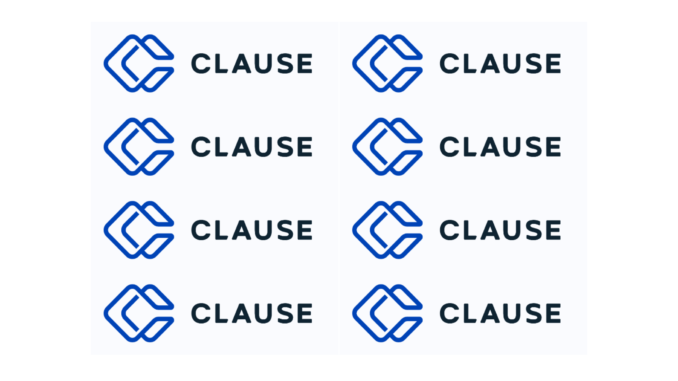
In what is another landmark moment for the world of smart contracts, a second major law firm has now launched a client-facing product based upon Clause’s technology.
The move by US firm BakerHostetler is focused on freight transportation and follows the move by Clyde & Co to provide clients with a parametric insurance contract for the energy sector, also based on Clause’s tech.
The US firm explained that the ‘connected freight transportation contract’ aims to save administrative overhead and help clients to avoid potential conflicts by using ‘smart clause’ templates.
These templates link with payment systems and public fuel price data to perform weekly pricing calculations, and they make payment adjustments as required by the smart contract, in what is a classic use case scenario for this type of solution.
To facilitate transparency, distributed ledger technology has been incorporated via the Hyperledger Fabric network, which creates a single, shared source of truth for auditing, accessible by the manufacturer and its transportation providers.
What is perhaps most important here is that we now have two major commercial firms building and selling smart contract-based products to the market. That is a significant development compared to just 12 months ago when everything felt very much in the pilot phase. I.e. this is law firms quite explicitly taking on the professional risks, internal resource investment, and the client winning benefits, of selling smart contract-based products.
we now have two major commercial firms building and selling smart contract-based products to the market
In short, this is all getting real now. Or perhaps it’s better to say: this is real now.
Katherine Lowry, Director of Practice Services for BakerHostetler, said: ‘Building on top of Clause’s technology infrastructure for Connected Contracting, we also developed a separate, patent-pending process targeted narrowly at fuel surcharges – but our efforts to better serve clients with technology-enabled legal services need not stop there. Many aspects of supply chain management could be streamlined or completely re-envisioned. We envision similar smart legal contracts for the communications, energy and manufacturing industries, as well as for other supply chain and logistics businesses.’
And Artificial Lawyer asks readers to look again at that last line. This firm says it expects to be doing this also in:
- communications
- energy
- manufacturing industries
- supply chain and [other] logistics businesses
That would be quite a significant market in total if they could turn clients on in all those areas to using smart contracts. And, as noted above, Clyde & Co has already done this in energy, but with an insurance focus.
All in all, exciting times. And more proof that what starts as fringe technology can indeed eventually become relevant to a law firm’s competitive position in the market.
How long before not offering such applications to clients is a competitive disadvantage? (See #MoreThanLaw.) No doubt that will take some time. How long though remains to be seen.
–
In related news:
DocuSign has partnered with Clause to bring its ‘Smart Clause’ technology to the DocuSign Agreement Cloud. The company already has a strong relationship with Clause and also has invested in it.
Smart Clauses transform legal agreements into ‘living documents’ that can integrate with a variety of data sources and software systems to automate complex business processes.
A Smart Clause consists of:
- natural language text,
- parameters,
- and code.
It can be incorporated into any document being sent via DocuSign to perform operations such as adding data to an audit trail or triggering specific events. As a result, an agreement is transformed from a static document that needs to be manually managed and analyzed, to an item of value that can provide real-time business intelligence.
For example, Smart Clauses can enable customers to chain DocuSign ‘envelopes’ together, process payments automatically once conditions are met, calculate values in contracts using trusted external data, reconcile agreement data with enterprise systems, and perform countless other functions. To help ensure enforceability and transparent record keeping, Smart Clauses can also be rendered in the PDF records of any agreements in which they are embedded.
That’s quite a list of capabilities and it will be interesting to see how firms and corporates make use of this facility.
(Note: it’s understood that Smart Clauses are currently available as part of a Beta programme and customers need to ask their DocuSign account team to get signed up for them.)
DocuSign Chief Product Officer, Ron Hirson, said: ‘DocuSign has long been at the forefront of helping organizations digitally transform, and the next step of that evolution is to transform agreements from static text to dynamic living agreements. We are committed to making the DocuSign Agreement Cloud smart, and excited to take the first step toward fulfilling that vision with the introduction of Smart Clauses.’
Clause founder and CEO, Peter Hunn, added: ‘We’re thrilled to be bringing our industry-leading technology to deliver huge business value to the more than 500,000 customers already using DocuSign.’
So, there you go. A double-win for Clause this week, and to reiterate: proof that smart contract tech is now here for real.
Conclusion: This tech looks set to become a viable part of the legal environment a lot faster than some had expected….a bit like the broader use of AI tools (which some were also initially very sceptical about).
It will be great to see who comes up with what next, whether a law firm building new specific products for their clients, or another tech company seeking to leverage this type of tech as part of their wider offering.